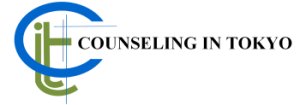Letter to Dr. Insel, NIMH
We wrote a letter to Dr. Thomas Insel about an article he had written related to parity of reimbursement for psychiatrists, and in this article his noting that CBT had been proven to be effective. We did not receive a reply, and are concerned that the NIMH may be pushing parity of reimbursement over the correct scientific assessment of CBT as an as yet unproven therapeutic modality. Because of this we post this letter on line here.
From: Doug Berger, M.D., Ph.D.
Sent: Tuesday, October 21, 2014 11:32 PM
To: 'tinsel@mail.nih.gov'
Subject: Your nice article in the PT on parity
Dear Dr. Insel,
Thank you for your nice article in the PT on parity. In it you mentioned that “..the efficacy..of CBT..has been proved to be effective.”“effective” for what though you don’t mention.
It surprised me that you could consider an intervention that has never had a double blind study to be proven. Could you actually conclude a drug that did not have a double blind study was proven to be effective? Treatment allocation can not be blinded in CBT studies because the subjects have to actively participate in cognitive restructuring tasks. There is no regulatory authority like the FDA to review and dictate how to conduct a CBT clinical trial.
Later in the article you even mentioned “homework in CBT” How are these studies possibly blinded or concealing treatment allocation? The amount of homework is just a measure of lack of blinding in the study, not a measure of quality or fidelity [of a therapy] when it comes to a clinical trial.
Please see the study attached: Lynch D, Laws, KR, McKenna PJ. Cognitive behavioral therapy for major psychiatric disorder: does it really work? A meta-analytical review of well-controlled trials. Psychol Med. 2010;40:9-24.
[this study concluded that:](1) CBT is no better than non-specific control interventions in the treatment of schizophrenia and does not reduce relapse rates; (2) CBT is not an effective treatment strategy for prevention of relapse in bipolar disorder; (3) CBT treatment effects are small in treatment studies of Major Depression.
The results of this analysis need to be confirmed by other groups. CBT trials are also often stated to be, “single blind” because the persons who rate the symptoms subject’s report do not know the allocation of the subject. The definition of “single blind”, however, is actually when the subjects are blind, not the raters (you can google “definition of single blind”or see: Friedman LM, Furgerg CD, DeMets DL. Fundamentals of Clinical Trials, Third Edition. Springer; 1998.
Besides definitions, blind raters just record whatever bias may be in the subjective reports of the subjects that may be swayed by unblinding. We would not consider a chemotherapy trial “single blind” if a CT scan measuring tumor size was said to be blind to the allocation group in a study unblinded to the subjects and treaters; its also an unblinded trial.
The critical problem of blinding in a CBT clinical trial requires further evaluation by research groups who do not have any vested interest in CBT or related therapies. While I personally believe CBT may help persons function better, I don’t think CBT has being “proven” for any psychiatric disorder in any sense of the word like a [therapeutic modality that has undergone a] double blind trial can be, and they [CBT trials] are not single blind trials either, they are unblinded studies.
I hope you will consider this logic seriously and forgive the sudden letter.
Kind regards, Doug Berger
Other reading Berger D: Cognitive Behavioral Therapy: Escape From The Binds of Tight Methodology. Psychiatric Times, July 30, 2013. http://www.psychiatrictimes.com/cognitive-behavioral-therapy/cognitive-behavioral-therapy-escape-binds-tight-methodology#comment-16855



